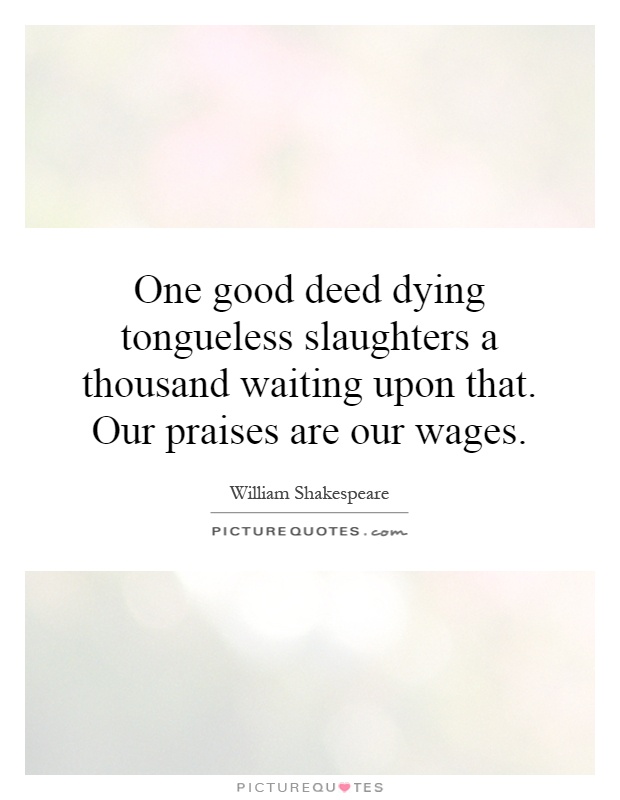One good deed dying tongueless slaughters a thousand waiting upon that. Our praises are our wages

One good deed dying tongueless slaughters a thousand waiting upon that. Our praises are our wages
William Shakespeare, often regarded as one of the greatest playwrights in history, had a deep understanding of human nature and the power of words. In his works, he frequently explored themes of morality, justice, and the consequences of our actions. One of his most famous quotes, "One good deed dying tongueless slaughters a thousand waiting upon that. Our praises are our wages," encapsulates this idea perfectly.This quote, spoken by the character Duke Vincentio in Shakespeare's play "Measure for Measure," highlights the importance of doing good deeds and the impact they can have on others. The idea that a single act of kindness can have a ripple effect, inspiring others to follow suit, is a powerful message that resonates throughout Shakespeare's works.












 Friendship Quotes
Friendship Quotes Love Quotes
Love Quotes Life Quotes
Life Quotes Funny Quotes
Funny Quotes Motivational Quotes
Motivational Quotes Inspirational Quotes
Inspirational Quotes